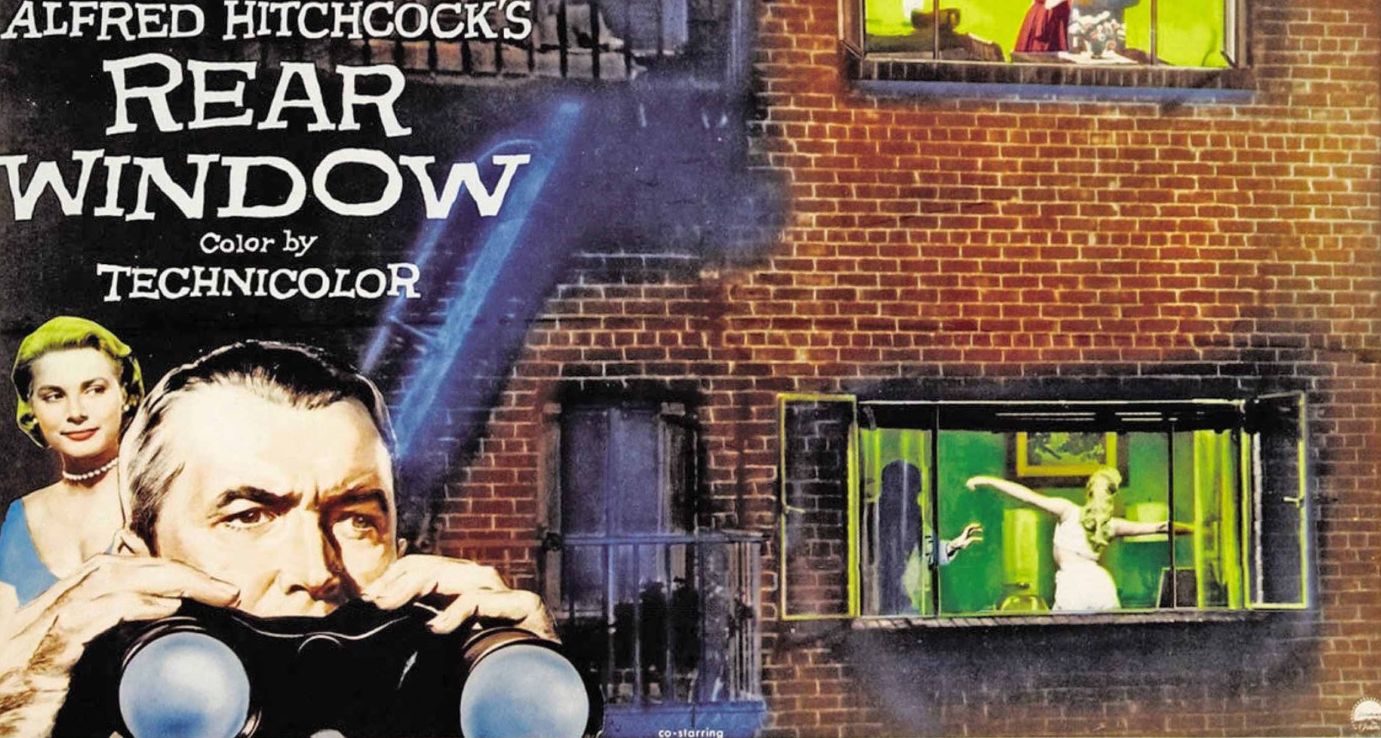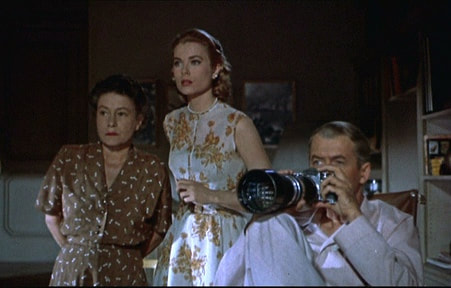|
Respond to one of the following questions. Develop a clear argument and point of view. Integrate at least two texts we have discussed this semester into your response (one of these texts can be from English). You'll want to back up your argument with plenty of examples from the film and course readings. Please feel free to focus on any one angle of the question that interests you (don't try to cover everything). Tell us something we didn't already know! Feel free to write as much as you wish, but note that it would probably be difficult to respond in anything less than 200-250 words. Pay attention to what your peers' have observed before you so as to ensure that the conversation is advancing. You may have until Saturday to complete your response. Good luck!
1) Plato's Cave Allegory and Freud's "Three Essays," in very different ways, connect the human quest for knowledge with a desire to see what is forbidden. In what ways does REAR WINDOW illustrate, or complicate, either Plato or Freud's perspective on knowledge? 2) What might we learn by comparing Jeff, Lisa, and Stella's approach to uncovering knowledge? How might class background and gendered norms inform their style of discovering truth? What are the strengths and weaknesses of each approach? What are the obvious, and not so obvious, implications of their methods (personal and social) for cracking the case? 3) Analyze the relationship between Jeff and Lisa. How does it evolve? What are its strengths and weaknesses? What are Jeff and Lisa's fears, anxieties, and insecurities? What role does boredom, excitement, and third parties play in the evolution of their romance? Do they make sense as a couple? You are encouraged to consider questions of gender, power, and perversion (including "castration complex," "penis envy," and the "infantile") in your response. 4) Many scholars have argued that Plato's Cage Allegory, Freud's theory of dreams, and Hitchcock's REAR WINDOW each provide excellent metaphors for the experience of watching movies. Provide an analysis of REAR WINDOW as a metaphor for cinema that touches on at least one of these theories.
69 Comments
Choose one of the following topics. Write your opening forum post on a single, specific detail with a clear, well supported thesis, in 150 words or fewer. Part of this new post is to encourage concision and specificity in your writing, so please do not go over the word limit. The word count includes any quotations you might draw from the text(s). Read all responses prior to yours; make sure that your response adds to the discussion that is already underway.
Identify which topic you answered at the beginning of your response; e.g., (Topic 1). Please have your posts up by Saturday, 22 September. TOPIC 1: In no more than 150 words, and with reference to the readings for this week, write a response in which you explain why this week you were asked to read an article on early cinema spectacle (Gunning), to read a short story about a depressive observer (Poe), and to view a film about an obsessive amateur sleuth (or sleuths!) (Hitchcock). TOPIC 2: In no more than 150 words, discuss the significance of Emily Dickinson’s “‘Tis so appalling—it exhilarates,” and use it as a way of understanding the events, themes, or conflicts of Rear Window. Do not use outside sources (including internet material) for this assignment. Use only the texts required for the course. Remember to indicate italics in your response using all caps, as follows: REAR WINDOW. IMAGE CREDIT: The image above is a composite of multiple shots from Rear Window by artist Boris Rautenberg. The idea was to give a full sense of the panoramic view of L.B. Jeffries' apartment in the film. You can find this image and one other detail on his website, here. |
INSTRUCTIONS
Please respond in the Comments section. To see this section, just click the red "comments" line). To create a new response, use the "Leave a Reply" box. Do not use the "reply" button under the previous user's comment. Add your comment as an entirely new one. It is best to write your response in a document that you can save, and then paste it into the comments box. Be sure to read all comments by your peers before writing your own, and to consider the ongoing discussion in your own comment. Be original! |




